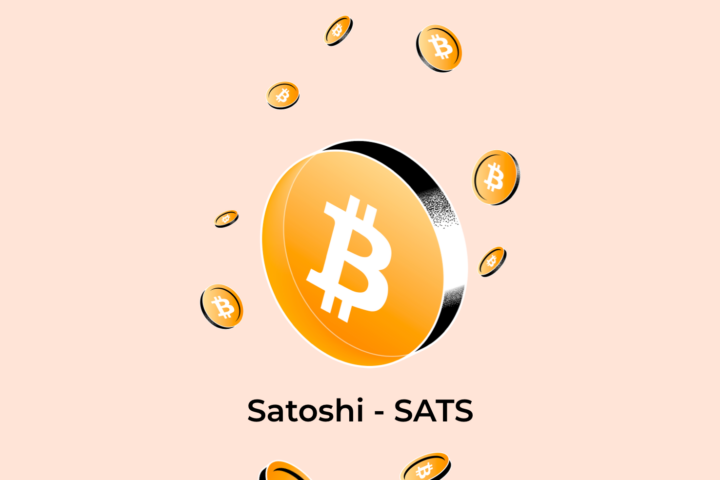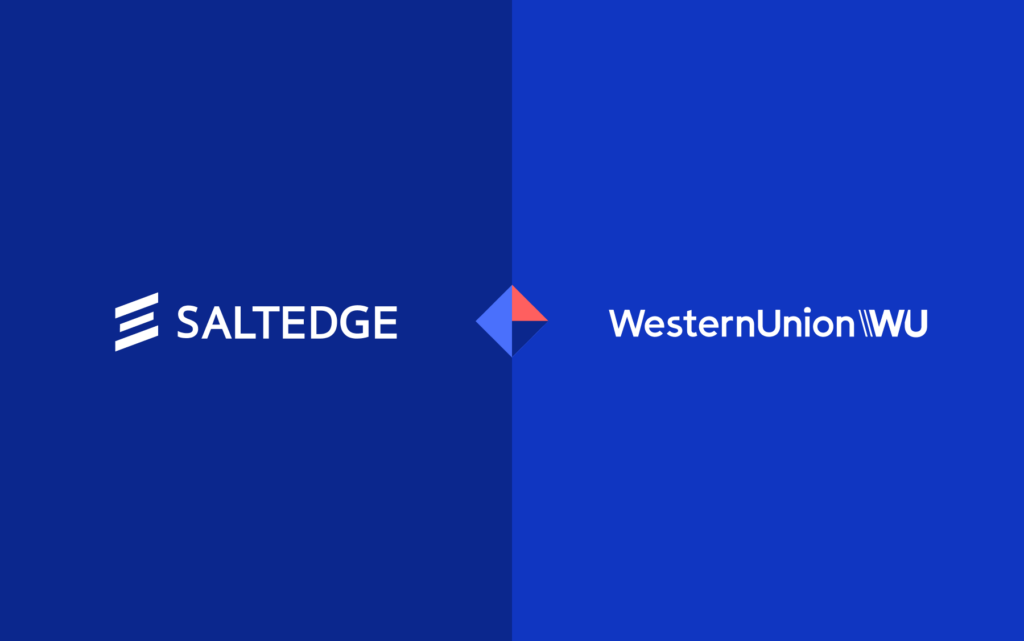Switching to the Satoshi standard and Lightning Network connectivity makes Bitcoin more tangible and easy to use. AAX has made the first move in the crypto space, already providing BTC to SAT
Migrant remittance network TransferGo seals $50 million funding round
LiveLondon-based remittance outfit TransferGo has closed a $50 million Series C round led by Elbrus Capital and Black River Ventures. The firm connects 3.5m customers across 160 markets. Despite a challenging economic environment for migrant workers it has experienced prolific, sustained growth at 80x year-on-year during the pandemic.
Since its launch, TransferGo has processed 13.5m international and local transactions, amounting to over $6bn in money flow.
Daumantas Dvilinskas, founder and CEO, says: “Since launch in 2012, we’ve grown the company from an acorn of an idea to a workforce of over 200 people based all around the world. With the additional funding, our next chapter of growth will see us in an even stronger position to keep innovating and developing our product offering, for hardworking migrants all across Europe.”
The latest fundraise, which included participation from existing investors Hard Yaka, VEF, SmartHub and Milano Investments, brings the total raised to date for the company to $77m.
Siam Commercial Bank preps VC fund as it looks to become a regional fintech player
LiveSiam Commercial Bank (SCB) is joining forces with Thai conglomerate Charoen Pokphand (CP) Group to create a venture capital fund that will invest up to $800 million in areas such as blockchain, digital assets and fintech. The partners will take 50:50 ownership of the global Disruptive Technology Venture Capital Fund, with each contributing $100 million of capital. Another $400 million to $600 million will be sought from external limited partners.
The move builds on SCB’s decision last year to set up a digital technology investment arm called SCB 10X, which will manage the fund alongside CP Group.
Arthid Nanthawithaya, CEO, Siam Commercial Bank, says: “Financial services in the future will be very different from today. Blockchain-enabled financial services have the potential to broaden financial inclusion, facilitate open access, and encourage innovation. CP Group and SCB Group bring together unique value-add propositions to both startups and investors.”
Separately, the bank has set up SCBX as a “mothership company” designed to enable it to become a “regional financial technology conglomerate” by 2025, with the goal of building a 200 million strong customer base.
SCB will “no longer be a bank in the original sense of the word, instead of transforming into a financial technology group with a stronger banking business as part of the group,” says a statement.
According to Nanthawithaya: “SCB must no longer limit itself to the traditional banking business, but rather take advantage of its financial strength to accelerate its aggressive expansion into other types of financial businesses that the market demands, build technological capabilities, and manage a large technology platform to keep pace with global players.”
Persistence Partners with BridgeTower Capital to Offer Institutional Access to Liquid Staking
Singaporean Persistence, the multi-asset protocol focused on liquid staking, NFTs, and commodities, today announces that it has partnered with BridgeTower Capital, the global private equity firm focused on blockchain infrastructure and bridging digital assets to traditional institutional investors.
BridgeTower has become a leading institutional participant of Persistence’s new liquid staking product, pSTAKE. pSTAKE unlocks the true potential of Proof-of-Stake (PoS) tokens by unlocking the liquidity of staked assets–a market currently in excess of $100 billion.
Token holders of pSTAKE supported PoS networks can mint 1:1 pegged ERC-20 staked representative tokens for their native PoS assets. Subsequently, these assets can be utilized within the existing Ethereum DeFi ecosystem to generate additional yield. Since its launch in July, over $5M in total value has been locked on pSTAKE, with that figure continuing to accelerate at pace following the solution’s recent uncapped launch.
BridgeTower Capital in the last quarter has allocated over $200M to its staking infrastructure and will aggressively continue to build its services offerings and assets.
Tushar Aggarwal, CEO and Founder of Persistence commented, “I’m thrilled to see the extraordinary levels of engagement on pSTAKE since launching last month. There is now over $5M in total value locked on the protocol, and this continues to rapidly accelerate following the recent launch of the uncapped version of pSTAKE. Our partnership with BridgeTower Capital can help unlock the next exciting phase of growth for the platform and ensure that institutions, as well as the wider crypto community, can benefit from unlocking the liquidity of their staked assets.”
In addition to the pSTAKE integration, the partnership also includes the shared launch of validator nodes for multiple Proof-of-Stake networks. By combining expertise from their respective bases of Singapore and Switzerland, the firms hope to drive the adoption of staking and DeFi solutions globally.
“We have worked hard to create sustainable blockchain infrastructure serving institutional and regulated opportunities,” said BridgeTower Chief Executive Officer Cory Pugh. “We have services across several networks including Algorand, Solana, Polkadot, Avalanche, Akash, Terra and Persistence itself, and are preparing to launch Helium and Ethereum 2.0.”
pSTAKE is one of a range of DeFi products that form the Persistence ecosystem, including AUDIT.One, a staking-as-a-service solution for institutions, and Comdex, an agri-commodities decentralized exchange (DEX).
SEBA Bank secures the first institutional licence to custody Collective Investment Schemes for Digital Assets in Switzerland
LiveSEBA Bank, a FINMA licensed Swiss Bank providing a seamless, secure, and easy-to-use bridge between digital and traditional assets, today announced that the bank has been granted a licence to act as a custodian bank for Swiss collective investment schemes pursuant to Art. 72 CISA (KAG).
This is the first licence granted in Switzerland by the Swiss Financia Market Authority (FINMA) to a custodian bank focused on digital assets. The CISA licence will accelerate SEBA Bank’s growth by extending its institutional-grade digital asset custody services to Swiss domiciled mutual funds in the fast-evolving digital assets space. This is an important new institutional capability in the evolution of digital assets investments across Europe.
This new licence extends SEBA Bank’s fully integrated digital asset investment activities by offering digital custody services for Swiss domiciled mutual funds and is an important new enabler of liquid investment funds with crypto or other digital assets as an underlying investment class.
Guido Buehler, CEO of SEBA Bank, states, “Two years ago SEBA Bank received a Swiss banking and securities firm licence and is now enjoying excellent business momentum as institutional adoption of crypto & digital assets accelerates globally. With our new CISA licence, SEBA Bank continues its pioneering role in the institutional digital asset space. Asset Managers can now offer strategies based on crypto or other digital asset underlying to a broader audience utilizing Swiss-based mutual fund structures secured by SEBA Bank as the CISA-licensed custodian.”
Exclusive: China’s Crypto Ban -Transcription of the official Chinese note against Crypto
LiveFinsight News publishes the transcription of the Chinese official statement on the crypto ban in both Chinese and English. China banned all crypto transactions and vowed to stop illegal crypto mining, delivering the toughest blow yet to the trillion-dollar industry. Crypto-related transactions will be considered illicit financial activity, including services provided by off-shore exchanges, the People’s Bank of China said on its website.
近日,人民银行等十部门发布《关于进一步防范和处置虚拟货币交易炒作风险的通知》(以下简称《通知》)。人民银行有关负责人就相关问题回答了记者提问。
1.《通知》的出台背景是什么?
近年来,比特币等虚拟货币交易炒作活动盛行,扰乱经济金融秩序,滋生洗钱、非法集资、诈骗、传销等违法犯罪活动,严重危害人民群众财产安全。按照党中央、国务院决策部署,人民银行会同有关部门出台一系列政策措施,明确虚拟货币不具有法定货币地位,禁止金融机构开展和参与虚拟货币相关业务,清理取缔境内虚拟货币交易和代币发行融资平台,持续开展风险提示和金融消费者教育,取得积极成效。为建立常态化工作机制,始终保持对虚拟货币交易炒作活动的高压打击态势,人民银行等部门结合新的风险形势,在总结前期工作经验的基础上,起草了《通知》。
Recently, ten departments including the People’s Bank of China issued the “Notice on Further Preventing and Disposing of the Risks of Hype in Virtual Currency Transactions” (hereinafter referred to as the “Notice”). The relevant person in charge of the People’s Bank of China answered reporters’ questions on related issues.
1. What is the background of the “Notice”?
In recent years, Bitcoin and other virtual currency transaction hype activities have prevailed, disrupting economic and financial order, breeding money laundering, illegal fund-raising, fraud, pyramid schemes and other illegal and criminal activities, seriously endangering the safety of people’s property. In accordance with the decision and deployment of the Party Central Committee and the State Council, the People’s Bank of China, in conjunction with relevant departments, has introduced a series of policies and measures to clarify that virtual currencies do not have legal tender status, prohibit financial institutions from developing and participating in virtual currency-related businesses, and clean up and ban domestic virtual currency transactions and token issuance financing The platform continued to carry out risk warning and financial consumer education, and achieved positive results. In order to establish a normalized work mechanism and always maintain a high-pressure crackdown on virtual currency trading activities, the People’s Bank of China and other departments have combined the new risk situation and drafted the “Notice” based on the previous work experience.
2.《通知》对虚拟货币和相关业务活动如何定性?
我国对虚拟货币的监管政策是明确的、一贯的。《通知》再次强调具有非货币当局发行、使用加密技术、分布式账户或类似技术、以数字化形式存在等特点的虚拟货币,如比特币、以太币等,包括泰达币等所谓稳定币,均不具有与法定货币等同的法律地位,不能作为货币在市场上流通。《通知》明确指出,虚拟货币兑换、作为中央对手方买卖虚拟货币、为虚拟货币交易提供撮合服务、代币发行融资以及虚拟货币衍生品交易等虚拟货币相关业务全部属于非法金融活动,一律严格禁止,坚决依法取缔;境外虚拟货币交易所通过互联网向我国境内居民提供服务同样属于非法金融活动。
2. How does the “Notice” characterize virtual currencies and related business activities?
China’s country’s regulatory policies on virtual currencies are clear and consistent. The “Notice” once again emphasizes that virtual currencies that are issued by non-monetary authorities, use encryption technology, distributed accounts or similar technologies, and exist in digital form, such as Bitcoin, Ethereum, etc., including so-called stable currencies such as TEDA, are not It has the same legal status as legal tender and cannot be circulated in the market as currency. The “Notice” clearly stated that virtual currency exchange, virtual currency trading as a central counterparty, provision of matching services for virtual currency transactions, token issuance financing, and virtual currency derivative transactions are all illegal financial activities and are strictly prohibited. , Resolutely banned in accordance with the law; overseas virtual currency exchanges to provide services to Chinese residents through the Internet are also illegal financial activities.
3.《通知》提出哪些工作措施?
一是建立部门协同、央地联动的常态化工作机制。中央层面,人民银行、中央网信办、公安部等十部门建立协调机制,整体统筹和推动工作落实;地方层面,各省级人民政府落实属地风险处置责任,依法取缔打击本辖区虚拟货币相关非法金融活动。
二是加强对虚拟货币交易炒作风险的监测预警。人民银行、中央网信办完善虚拟货币监测技术平台功能,提高识别发现虚拟货币交易炒作活动的精度和效率。金融机构和非银行支付机构加强对涉虚拟货币交易资金的监测工作。各部门、各地区加强线上监控、线下摸排、资金监测的有效衔接,建立信息共享和交叉验证机制。
三是构建多维度、多层次的虚拟货币交易炒作风险防范和处置体系。金融管理部门、网信部门、电信主管部门、公安部门、市场监管部门密切协作,从切断支付渠道、依法处置相关网站和移动应用程序、加强相关市场主体登记和广告管理、依法打击相关非法金融活动等违法犯罪行为等方面综合施策,有关行业协会加强会员管理和政策宣传,全方位防范和处置虚拟货币交易炒作风险。
3. What work measures are put forward in the Notice?
First, a normal working mechanism featuring departmental coordination and central-local interaction shall be established. At the central level, the People’s Bank of China, the Office of the Central Cyberspace Affairs Commission, the Ministry of Public Security and other ten departments shall establish coordination mechanisms to make overall planning and promote the implementation of work; At the local level, all provincial people’s governments shall fulfill the local responsibility for risk disposal, and legally ban and crackdown on illegal financial activities related to virtual currencies within their respective jurisdictions.
Second, monitoring and pre-warning of the speculation risks in virtual currency trading shall be strengthened. The People’s Bank of China and the Cyberspace Administration of China shall improve the functions of the virtual currency monitoring technical platform, and improve the accuracy and efficiency of identifying and discovering virtual currency trading speculation. Financial institutions and non-bank payment institutions shall strengthen the monitoring of funds involved in virtual currency transactions. All departments and regions shall strengthen the effective connection between on line monitoring, offline mapping, and fund monitoring, and establish an information sharing and cross-validation mechanism.
Third, we shall establish a multi-dimensional and multi-level system for the prevention and disposal of risks generated from virtual currency trading speculation. The financial management departments, network and information departments, competent telecommunications departments, public security departments, and market regulatory departments shall closely cooperate to comprehensively take measures in such aspects as cutting off payment channels, legally disposing the relevant websites and mobile applications, strengthening the registration and advertising management of relevant market players, and legally cracking down on illegal and criminal activities such as relevant illegal financial activities. Relevant industry associations shall strengthen member management and policy publicity, and comprehensively prevent and dispose of the speculation risks of virtual currency transactions.
4.后续有什么工作安排?
打击虚拟货币交易炒作是党中央、国务院作出的重要决策部署,是贯彻以人民为中心的发展理念、落实国家总体安全观的必然要求。各部门、各地区将认真贯彻落实《通知》提出的各项举措,构建中央统筹、属地实施、条块结合、共同负责的长效工作机制,始终保持高压态势,动态监测、及时处置相关风险,坚决遏制虚拟货币交易炒作风气,严厉打击虚拟货币相关非法金融活动和违法犯罪活动,依法保护人民群众财产安全,全力维护经济金融秩序和社会稳定。
4. What are the follow-up work arrangements?
Cracking down on the virtual currency trading speculation is an important decision and arrangement made by the CPC Central Committee and the State Council, and an inevitable requirement for implementing the people-centered development concept and the national overall security concept. All departments and regions shall conscientiously implement all the measures set forth in the Notice, establish a long-term effective work mechanism under the overall planning of the Central Government, implemented in a territorial manner, integrated by departments and blocks, and jointly responsible for the work, always maintain a high-pressure situation, conduct dynamic monitoring and timely disposal of relevant risks, resolutely curb the hype surrounding virtual currency trading, severely crack down on illegal financial activities and illegal and criminal activities related to virtual currencies, protect the property safety of the people in accordance with the law, and make all efforts to maintain the economic and financial order and social stability.
The translation is approximate and follows entirely the script published originally on the Chinese website. The original can be viewed here: http://www.pbc.gov.cn/goutongjiaoliu/113456/113469/4348556/index.html
China to issue a nationwide ban on cryptocurrency mining
LiveChina intensified a crackdown on cryptocurrency trading on Friday, vowing to root out “illegal” activity in trading of bitcoin and other virtual currencies and issuing a nationwide ban on cryptocurrency mining.
China’s State Council, or cabinet, vowed in May to crack down on bitcoin mining and trading as part of efforts to fend off financial risk.
Ten Chinese government agencies, including the central bank as well as banking, securities and foreign exchange regulators, said in a joint statement that they would work closely to maintain a “high-pressure” crackdown on speculative trading of cryptocurrencies.
The People’s Bank of China said cryptocurrencies must not circulate in markets as traditional currencies and that overseas exchanges are barred from providing services to mainland investors via the internet.
The PBOC also barred financial institutions, payment companies and internet firms from facilitating cryptocurrency trading.
The government will “resolutely clamp down on virtual currency speculation, and related financial activities and misbehaviour in order to safeguard people’s properties and maintain economic, financial and social order,” the People’s Bank of China said in a statement on its website.
Bitcoin, the world’s largest cryptocurrency, dropped as much as 5 percent after the PBOC’s announcement having earlier been down about 1 percent.
Salt Edge PSD2 Compliance Solution to be integrated into Western Union’s digital bank pilot in Europe
LiveSalt Edge has teamed up with Western Union, a global leader in cross-border, cross-currency money movement and payments, to integrate its solution into the latter’s multi-currency bank account pilot in Europe. Backed up by PSD2 compliance, Salt Edge’s solution will enable Western Union to extend the relationship with its customers, and create a new banking experience.
Becoming compliant with PSD2 means much more than fulfilling legal requirements. By turning to Salt Edge’s PSD2 Compliance Solution, Western Union is leveraging PSD2 possibilities for its customers, making the innovation more secure and allowing regulatory verified TPPs to access the developer portal and the PSD2 APIs in accordance with legal requirements. In the end, the final user enjoys an upgraded customer experience, using the new multi-currency bank account service.
“With plans underway to launch a Western Union digital bank pilot in Europe, being PSD2 compliant is critical to our success and enabling our products. It will allow us to offer customers a superior experience as we look to expand our service portfolio. Our collaboration with Salt Edge will allow us to meet these goals, based on the team’s focus on innovation and agility, and great experience in providing market-leading solutions” said Thomas Mazzaferro, Chief Data Officer for Western Union
Western Union today has one of the biggest financial networks in the world, connecting millions of consumers to their families and loved ones, as well as to the world economy, across more than 200 countries and territories and in over 130 currencies. The company’s global account payout capabilities are available in over 125 countries with real-time capabilities in approximately 100 countries. Over 60% of Western Union’s global account payout transaction volume is delivered in real-time.
Dmitrii Barbasura, CEO at Salt Edge added: “Ever since PSD2’s adoption, we at Salt Edge have been encouraging and helping companies take a positive and constructive approach to the directive and see it as a big-time opportunity rather than a compliance hardship. Western Union has had this approach from the very beginning of our collaboration, focusing all of its efforts on the end consumer and the way they’ll be enjoying the new services. We are honoured to be contributing to this by integrating our PSD2 Compliance Solution and helping Western Union create all those new opportunities for its consumers.”
Salt Edge has two main vectors of activity: enabling third parties to get access to bank channels via a unified gateway, and developing the technology necessary for banks to become compliant with the directive’s requirements. ISO 27001 certified and AISP licensed under PSD2, the company employs the highest international security measures to ensure stable and reliable connections between financial institutions and their customers. The company is integrated with 5000+ financial institutions in 50+ countries.
Asia markets fight for footing as investors fret over Evergrande crisis
LiveReuters: Asian stocks struggled to shake off contagion fears on Tuesday and selling pressure persisted amid concern that troubles at indebted developer China Evergrande could ripple across the world economy, markets and financial system.
Hong Kong’s Hang Seng (.HSI) hit a fresh 11-month low and was down 0.3% by midsession, with a early gains in banks and property stocks paring a little. Japan’s Nikkei (.N225) returned from a market holiday with a drop of almost 2%.
Currency, commodity and bond markets steadied, but overall demand for riskier assets remained low especially as the Federal Reserve is expected to step closer to tapering on Wednesday.
European futures rose 0.5% in the Asia session. FTSE futures advanced 0.7% and S&P 500 futures climbed 0.6% a day after selling hit banks on both sides of the Atlantic and tipped the S&P 500 to its steepest fall in two months.
“For markets to bounce we need to see concrete actions from the authorities to stem any wide spread contagion,” said Dave Wang, a portfolio manager at Nuvest Capital in Singapore.
Though China is on holiday, and mainland markets closed, there was little evidence of that yet, with no mention of Evergrande’s troubles in major Chinese state media.
Evergrande, struggling for cash, owes $305 billion and investors are on edge at the risk a messy failure reverberates through China’s property sector and everything exposed to it – primarily banks and then the broader economy.
China’s yuan steadied in offshore trade to recoup some of the losses that sent it to a three-week low on Monday. Evergrande (3333.HK) shares fell 4% as focus there shifts to Thursday when the company is due to make bond interest payments.
The next few days present yet more tests, with the Federal Reserve concluding a two-day meeting on Wednesday and likely to offer some guidance on the tapering outlook and with Evergrande due to meet its bond interest payments on Thursday.
In the currency market, traders took solace from the relative calm in Hong Kong after Monday’s plunge.
The euro traded at $1.1730, after having touched a near-one-month low of $1.1700 while the safe-haven yen slipped to 109.57 yen to the dollar.
The 10-year U.S. Treasury yield crept up to 1.3277%, with moves capped as markets have an eye to the Fed.
Investors are looking for the tapering timeline on its bond purchases as well as its board members’ long-term rates and economic projections.
“I think the Fed will calm things down and I guess defer their tapering decision till November, said Jarrod Kerr, the chief economist at Kiwibank.
This week will also see policy decisions from many other central banks spanning Brazil, Britain, Hungary, Indonesia, Japan, Norway, the Philippines, South Africa, Sweden, Switzerland, Taiwan and Turkey.
Oil prices also rebounded a tad in Asia after falling the previous day. U.S. crude futures traded at $70.98 per barrel.
Wobbling cryptocurrencies also found a floor, with bitcoin bouncing from a 1 1/2-month low of $40,193 to trade just shy of $43,000.
Stripe opens London fintech development office
Stripe is opening a fintech development office in London that will focus on open banking, embedded finance and bank partner integrations.The move represents another investment in the European market for the San Francisco-headquartered payments giant, coming just a week after it outlined plans to recruit hundreds more engineers in Dublin over the next three years.
Led by Emma Burrows, Stripe’s head of engineering in London, the fintech development office will report to the Dublin engineering hub.
It will lead the company’s work on open banking in Europe, including a pay-by-bank feature being piloted next month, which will enable Stripe users to accept payments over open banking PIS rails.
The office will also work on Stripe products in the embedded finance space across Europe, as well as build the bank partner integrations for features such as a bank transfer product, which is already in beta.
Says Burrows: “London is a global leader in fintech with a strong engineering community deeply committed to driving better financial services for consumers and businesses. Stripe engineers in London are already helping build the future of financial services, and we’re excited to do even more with our Fintech Development Office.”
Founded by Irish brothers John and Patrick Collison, Stripe is the most valuable private company in Silicon Valley, valued at $95 billion in its last funding round n March.
The European expansion comes as the firm is reportedly preparing for a stock market debut next year after appointing a law firm to explore a listing.
Deutsche Bank acquires Better Payment
LiveDeutsche Bank has acquired Berlin-based payment service provider Better Payment to expand its market share in the fast-growing market for online payment processing and acceptance. Better Payment operates a payments gateway that enables merchants to send and receive multiple forms of online payments and is currently installed at 1500 retailers
The gateway is also available as a white-label product for banks and other companies to add to their portfolio of services, a business element which Deutsche Bank is expecting to show double-digit growth rates over the coming years.
“Better Payment gives us broader market access in payment processing. Thanks to the know-how of their employees, their existing dealer relationships and technical solutions, we can accelerate our growth in the German market, which is key to us,” says Kilian Thalhammer, head of merchant solutions at Deutsche Bank. “We will develop additional synergies by integrating the respective products from Deutsche Bank and Better Payments.”
Financial terms of the transaction were not disclosed.














